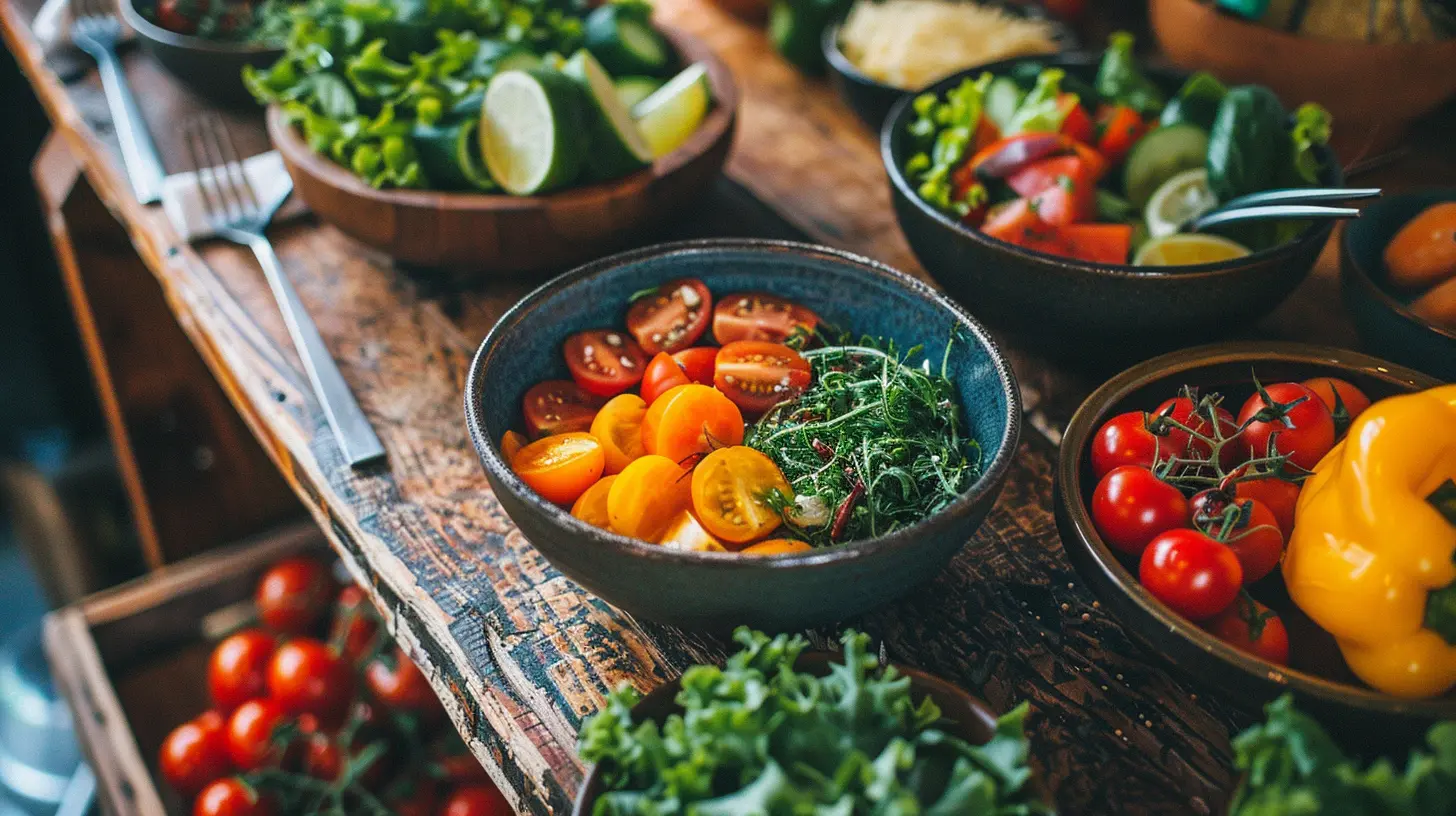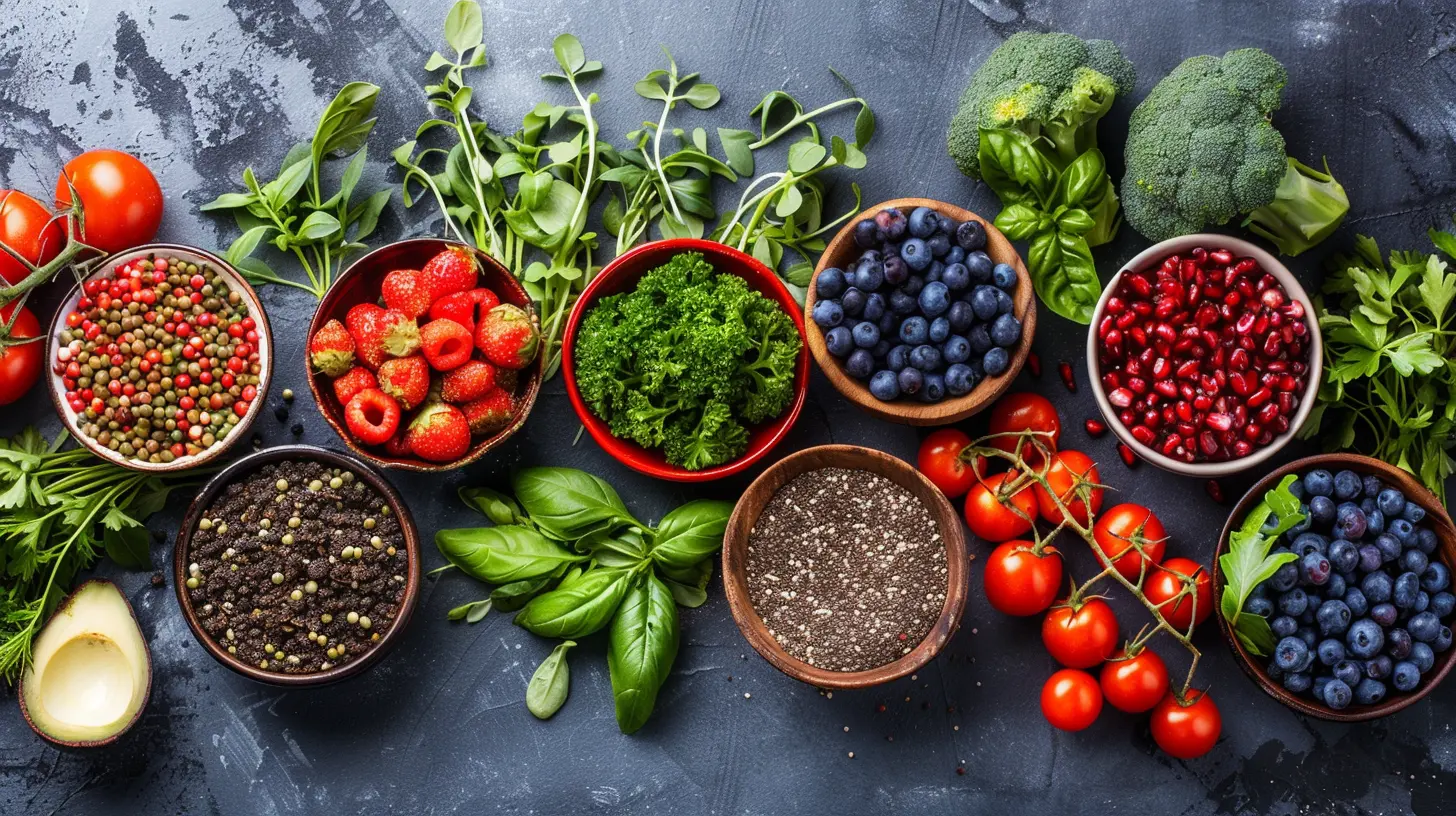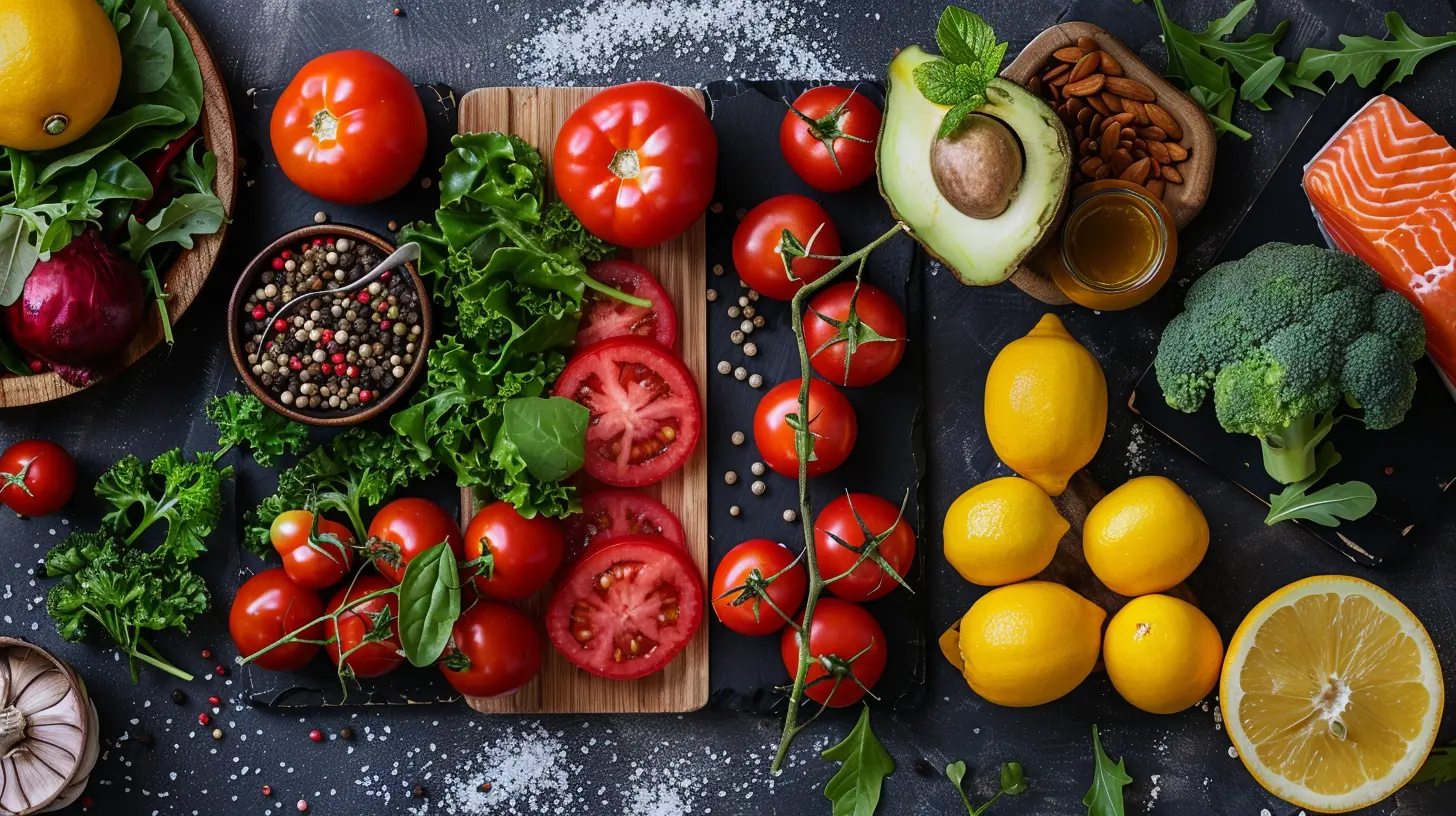Mindful Eating: The Secret to a Healthy Relationship with Food
7 October 2025
Introduction
Have you ever found yourself inhaling a bag of chips while binge-watching your favorite TV show, only to look down and wonder where it all went? Yep, we've all been there. In today's fast-paced world, eating has become more about convenience than nourishment. But what if I told you that the secret to a healthier relationship with food isn’t about dieting, cutting carbs, or counting macros? Instead, it’s about mindful eating.
Mindful eating isn’t some woo-woo trend where you chant affirmations to your broccoli. Nope, it’s about being present, savoring each bite, and actually listening to your body (crazy concept, right?). So, let’s dive in and uncover why mindful eating is the game-changer you never knew you needed! 
What Is Mindful Eating?
Mindful eating is exactly what it sounds like—eating mindfully. It means slowing down, paying attention to what you're eating, and actually enjoying your food instead of devouring it like a vacuum cleaner.At its core, mindful eating involves:
- Eating without distractions (goodbye, Netflix and munchies!)
- Noticing the flavors, textures, and smells of your food
- Listening to your body's hunger and fullness cues
- Eating with intention rather than out of boredom or stress
Think of it as treating your meal like a fancy date rather than a quick, awkward snack encounter. 
Why Do We Eat Mindlessly?
Let’s be honest—most of us eat on autopilot. We snack while scrolling through social media, munch while working, and devour meals faster than a toddler with a cupcake. But why?1. Distractions Everywhere
We live in a world where multitasking is king. Eating while driving, watching TV, or working has become second nature. Unfortunately, this means we’re not actually paying attention to what (or how much) we’re eating.2. Emotional Eating
Bad day at work? Cookies. Stressing over deadlines? Chips. Feeling sad? Ice cream. We often turn to food for comfort, even when we’re not actually hungry.3. Eating Out of Habit
Ever grabbed a snack just because it’s there? Sometimes, we eat simply out of routine rather than real hunger.4. Fast Food Culture
Everything is about speed—fast food, express meals, and eat-on-the-go options. The problem? We’ve forgotten how to enjoy our food.
The Benefits of Mindful Eating
So, why bother slowing down and paying attention to your food? Because the perks are pretty amazing!1. Helps with Weight Management
When you actually listen to your hunger cues, you stop eating when you’re full—no more stuffing yourself just because there’s food on your plate.2. Reduces Overeating and Binge Eating
Mindful eating helps break the cycle of eating out of boredom or emotions. You become more aware of why you're eating, making it easier to make better choices.3. Improves Digestion
Ever feel like a bloated balloon after a meal? Chewing slowly and eating mindfully helps your body digest food better, preventing bloating and discomfort.4. Enhances Your Enjoyment of Food
Imagine actually tasting your food instead of inhaling it. Mindful eating allows you to appreciate flavors, textures, and aromas in a way you never have before.5. Strengthens Your Relationship with Food
Instead of seeing food as the enemy or a guilty pleasure, you start viewing it as nourishment and enjoyment. Less guilt, more satisfaction!
How to Practice Mindful Eating
Ready to ditch the mindless munching? Here’s how to make mindful eating part of your everyday life.1. Eat Without Distractions
Put down your phone, turn off the TV, and actually focus on your meal. Trust me, Instagram will survive without your attention for 15 minutes.2. Chew Slowly and Savor Each Bite
Ever noticed how the first bite of a meal is always the best? Make every bite feel that way by chewing slowly and really tasting your food.3. Listen to Your Body
Are you really hungry, or just bored? Before grabbing a snack, check in with yourself. If you're not actually hungry, do something else—go for a walk, drink some water, or call a friend.4. Portion Your Food Intentionally
Instead of eating straight from the bag (we’ve all been guilty), serve your food on a plate. It helps you see exactly how much you’re eating.5. Practice Gratitude
Before taking the first bite, take a moment to appreciate your food. Where did it come from? How does it nourish you? A little gratitude makes meals more meaningful.6. Recognize Emotional Eating Patterns
Next time you reach for a snack, ask yourself: Am I actually hungry, or just stressed? If emotions are driving your cravings, find an alternative way to cope—like journaling, meditating, or taking deep breaths.7. Stop Eating When You're Full
This seems obvious, but many of us eat past fullness just because there’s still food on the plate. It’s okay to save leftovers! Your stomach will thank you later.Mindful Eating vs. Dieting: What’s the Difference?
A lot of people confuse mindful eating with dieting, but they’re totally different beasts.| Mindful Eating | Dieting |
|-------------------|------------|
| Focuses on listening to your body | Focuses on external rules and restrictions |
| Encourages enjoyment of all foods | Labels foods as “good” or “bad” |
| No guilt—just awareness | Often leads to guilt and shame |
| Sustainable, long-term change | Often short-term and unsustainable |
Mindful eating isn't about restriction—it’s about freedom! You can have your cake and eat it too—literally.
Common Misconceptions About Mindful Eating
1. “It’s Just Another Fad Diet”
Nope! Mindful eating isn’t about cutting out food groups or calorie counting. It’s about enjoying food in a healthier, more balanced way.2. “I Don’t Have Time to Eat Slowly”
You don’t have to turn every meal into a two-hour meditation session. Just slowing down a little and paying attention makes a big difference.3. “I’ll Never Be Able to Eat Junk Food Again”
False! Mindful eating isn’t about depriving yourself—it’s about enjoying food. That means you can still have your favorite treats, just in a more balanced way.Final Thoughts
Mindful eating is like giving your relationship with food a much-needed therapy session. Instead of mindlessly munching, you're tuning in, slowing down, and actually experiencing your meals. And the best part? No diets, no restrictions, no guilt—just a happier, healthier you.So the next time you eat, put down the distractions, take a deep breath, and truly savor each bite. Your body (and taste buds) will thank you!
all images in this post were generated using AI tools
Category:
Healthy EatingAuthor:

Arthur McKeever
Discussion
rate this article
1 comments
Henrietta Ruiz
Mindful eating: the only diet where daydreaming about dessert is part of the plan!
October 14, 2025 at 3:43 PM

Arthur McKeever
Absolutely! Mindful eating embraces all aspects of our food experience, including savoring the joy of our favorite treats without guilt.


